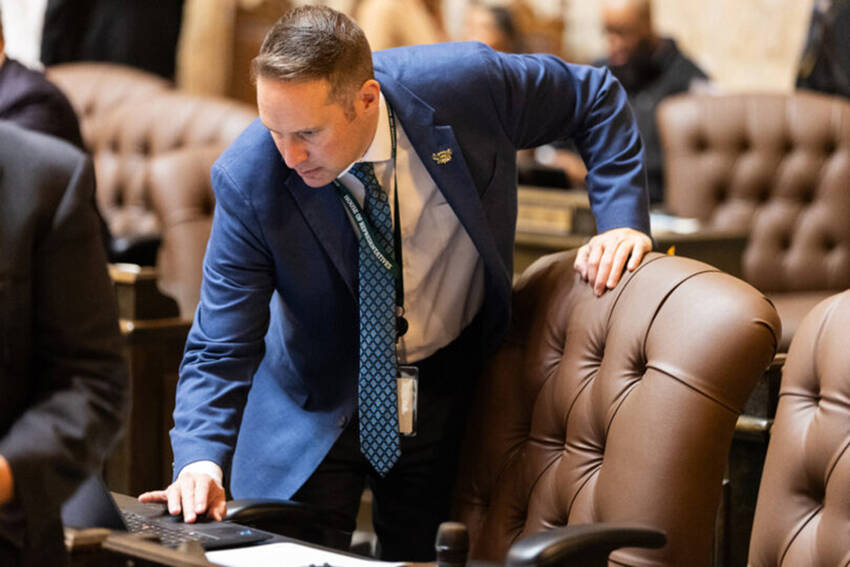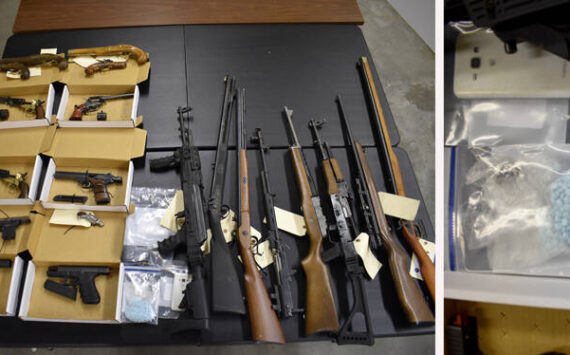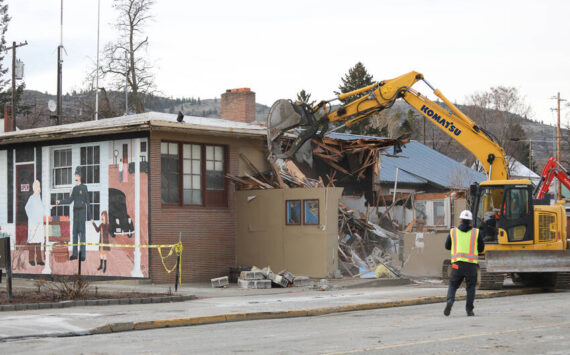Submitted by Brendon Wold | Deputy Communications Director
House Republican Caucus
OLYMPIA – The state of Washington continues to rank last in the nation for law enforcement officers per capita, 51 percent below the national average. In addition, the state has the highest motor vehicle theft rate, 114 percent higher than the national average, the most burglaries per capita, ranks number one in the nation for the most states impacted by retail theft, and ranks last among all states for safety.
This imbalance of low law enforcement numbers coupled with increasing violent and property crime leads to one conclusion: Washington state has a public safety crisis.
Washington State House Republicans have a solution.
Rep. Hunter Abell, R-Inchelium, has introduced legislation to allow the hiring of more cops, provide for more basic law enforcement training classes, and enable local governments to receive a state sales tax credit if they implement a local sales tax earmarked explicitly for hiring more law enforcement officers.
“We are in the midst of a public safety crisis,” said Abell, a freshman legislator and lawyer from the 7th Legislative District in Northeast Washington. “The safety of our streets, families, and communities is at the top of the list for most folks in my district. The lack of cops on the streets combined with misguided police ‘reforms,’ the growing homelessness crisis, and the deadly fentanyl epidemic have created a perfect storm of unease for many Washingtonians. While not one magic solution will solve all of these problems, hiring more officers to patrol our streets is a much-needed start.”
Abell’s first bill, House Bill 1435, creates a $100 million law enforcement hiring program to directly support local and tribal law enforcement. The grants would pay for up to 75% of the entry-level salaries and fringe benefits for full-time local or tribal officers for a maximum of 36 months. The grants cannot be used for any costs other than salaries and benefits.
“A financial investment in hiring more law enforcement officers at the local and tribal level is a must this session,” said Abell, who lives in Inchelium on the Colville Indian Reservation. “Our budget writers need to prioritize public safety. Safer streets should not be a partisan issue.”
Abell’s second bill, House Bill 1436, allows cities and counties to levy a 0.01% sales tax to specifically support law enforcement efforts and to hire more officers. That money would then be credited against the state portion of the sales tax, resulting in no additional cost to the taxpayers.
“With these two proposals, we’re targeting rural, local municipalities, tribal communities, and larger, more financially stable cities and counties,” said Abell. “We’re providing options for local governments to hire more law enforcement. They can choose whatever avenue works best for them, or both! There should be no excuse not to pass both of these bills. There should be no excuse for local jurisdictions not participating in these opportunities to make our streets safer.”
In the intent section of HB 1436, it says:
“The legislature finds the people of Washington have more reason to fear for their safety, with the incidence of violent crimes such as murder, rape, and aggravated assault reaching 25-year highs in the past few years, while the rate of property crime has ranked second highest in the nation over the past five years. The legislature also finds Washington ranks last in the nation for law enforcement officers per capita.”
“The legislature finds the counties and cities of Washington should be served by a number of law enforcement officers at least equal to the national average per capita, and that law enforcement agencies should be encouraged to invest in innovative crime reduction efforts when possible. To avoid placing more burden on local governments and to promote equitable and consistent enforcement of laws among jurisdictions, it is therefore the intent of the legislature to provide a source of funding to support additional local investments in law enforcement and public safety, with the goal of reducing violent and property crime.”
The bill also directs the Washington State Criminal Justice Training Center (CJTC) to increase the number of basic law enforcement training classes to 27 in fiscal year 2026 and 28 classes in fiscal year 2027.
“We also need to take a serious look at the policies put in place by the ruling party here in Olympia the past several years that have made law enforcement careers less attractive to people coming out of high school and college,” said Abell. “This once respected position of service, authority, and respect in our communities has been castigated, abused, and neutered. And our families and communities have suffered because of it.
“In the meantime, let’s send a message to criminals that Washington state is serious about the crime they’re committing and to current and future law enforcement officers that they are respected and wanted. And let’s send a message to the law-abiding citizens of Washington that we are going to make our streets safe again,” continued Abell. “Hiring more cops sends all three of those messages loud and clear.”
The 2025 legislative session began on Jan. 13 and will run for 105 days.








